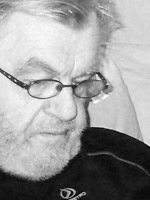
Jorma Tähtinen, Finland
Anna Sieväla interviewed her grandfather who was 44 years old and worked as a technician at the time of the accident. Back then he lived in Western Finland which received the biggest amounts of the radioactive fallout. He wonders if that could be the cause for his cancer.
I interviewed my grandfather Jorma Tähtinen as a time-witness of the Chernobyl accident. The interview took place at my grandfather’s home on the 27. November 2010. The interview situation was open and relaxed. I asked my grandfather the questionnaire questions as he sat in his armchair and his answers were mainly describing instead of yes/no answers. There was no one else present during the interview except for me and my grandfather so the situation was also private and allowed the time-witness to answer freely.
1. The familiar background of the time-witness
Jorma Tähtinen was born on 31.7.1941 in the small town of Liperi in Eastern Finland. His father worked as a conductor while his mother stayed home taking care of the home and children. Anyhow, when the financial situation of the family wasn’t good, also Jorma’s mother went to work to the railways as a cleaner. The social status of the family therefore was rather low but the family never had shortage of anything.
Jorma has one older sister, with whom he still stays in touch regularly. His older brother died at the age of one before Jorma was born.
Jorma describes his childhood and adolescence as fairly normal considering the time and the existing common conditions in Finland especially during his childhood. His early childhood was shadowed by the war with the Soviet Union. The war affected also his later childhood and adolescence through its financial affects.
Jorma got married in 1962 and his daughters were born in 1962, 1966 and 1968.
Jorma’s education consists of elementary school, vocational school and polytechnic school. After finishing his school Jorma worked as a technician until he retired in 1999.
Jorma says he didn’t have any specific political attitude during the Cold War but living right next to the Soviet Union made him follow the current situation in different times. He remembers thinking about the situation critically many times but says that he did not feel afraid for his safety although living next to the Soviet Union.
Read the full interview
